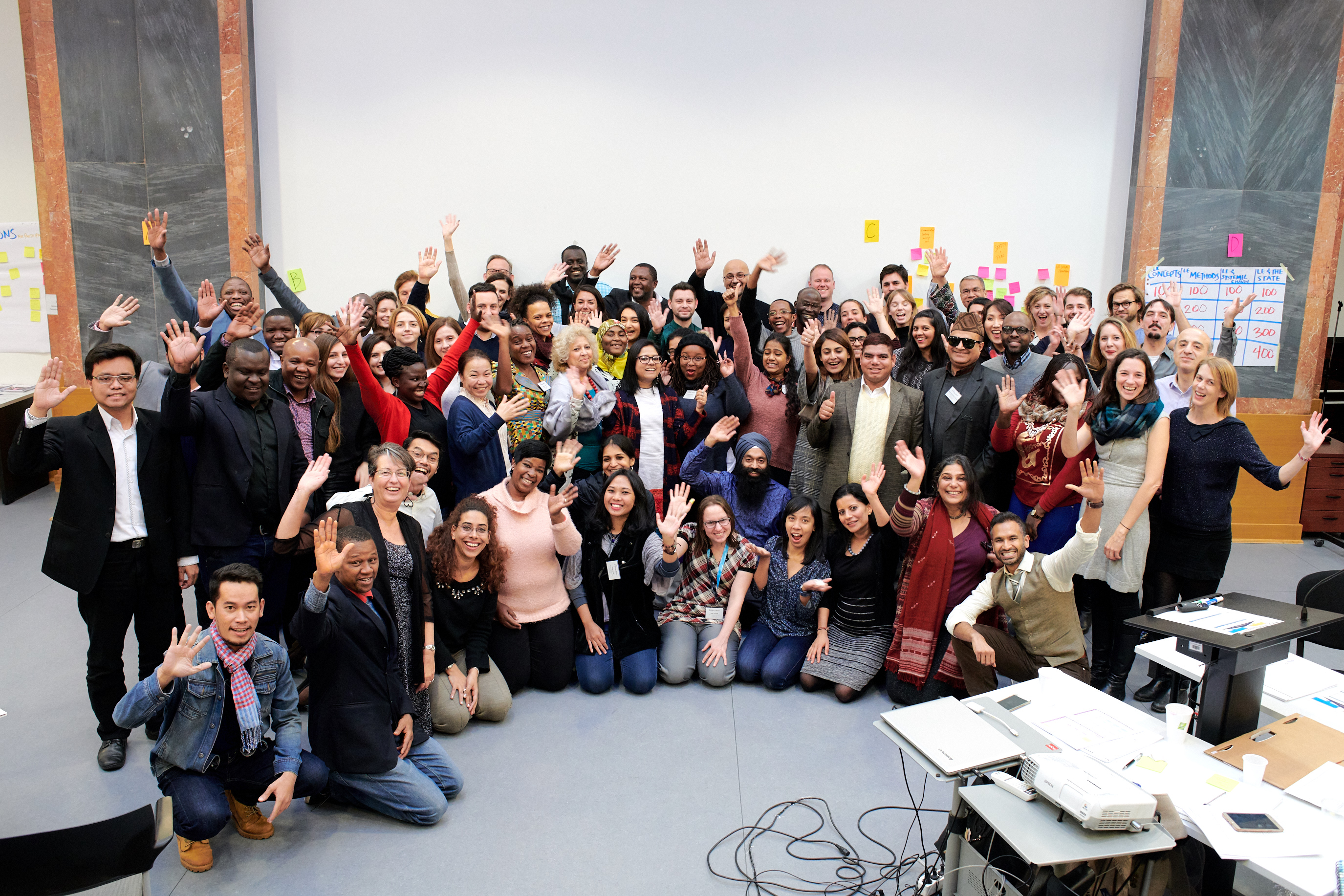
Our community fought hard to make justice part of the Sustainable Development Goals. But world governments have not backed their words with action. In many places, injustice is growing and justice systems are getting worse. On our current trajectory, the historic commitment in the SDGs to achieve “access to justice for all” could die as empty rhetoric.
We still have a chance to change that.
This week, the Task Force on Justice released one of the strongest endorsements of legal empowerment in any international document in history.
The Task Force, made up of governments, international organizations, civil society, and the private sector, came together to determine how countries can shift from justice for the few to justice for all by 2030.
As one of the civil society representatives on the Task Force, Namati’s CEO, Vivek Maru, goal was to sound the message of our movement: that progress towards justice requires giving people the power to know and exercise their rights.
The report doesn’t tiptoe around legal empowerment but rather embraces it as crucial to the achievement of the SDGs. “Legal empowerment helps people understand and use the law,” the Task Force finds. “It enables them to recognize legal problems when they arise and equips them with the skills and confidence to take action.”
Legal empowerment is essential not just for resolving individual disputes, but for “challeng[ing] powerful business and state interests” and “tackling the root causes of collective injustices.”
The report acknowledges that civil society has “a vital role to play in helping build trust in justice systems, by bringing justice closer to the people” and highlights the funding and protection challenges that stymie our community’s efforts.
The Task Force “supports the demand of the Justice For All campaign” and underscores that achieving the promise of the SDGs requires “recognizing grassroots justice defenders, financing them in ways that respect their independence, and protecting them from violence and coercion.”
The time is now to build long-term momentum. Use the Justice For All Action Pack to share the report’s recommendations with your government and highlight how civil society and government can work together to implement them.
Tap into the global energy around SDG16. At two moments in this Year of Justice — the High-level Political Forum and the UN General Assembly — governments will report for the first time on the progress they’ve made in delivering access to justice.
The Task Force report calls for governments to come to these events with concrete country-level commitments. Let’s use this window to shape what those commitments will be.
We cannot afford to have another year slip by without a hard charge towards justice. Our movement is helping to change the current trajectory. It’s high time our governments followed suit.
Download the full report here.